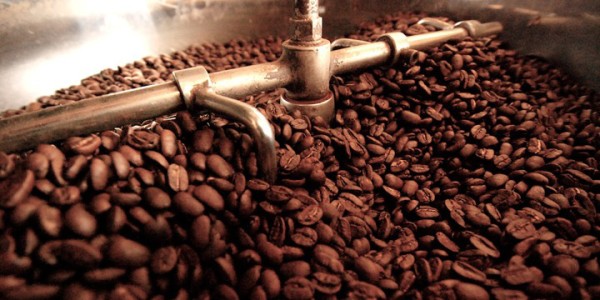
How can the “micro roasters” and local coffee shops compete with the “mega chain” roasters and coffee franchises? In this age of mass production, mass consumption and constant inundation by mass advertising, how can the “little fish” swim among the “sharks” (or mermaids) and survive?
I often wonder how my small roasting business, or anyone else’s, will ultimately survive against the giants of the specialty coffee industry. Lay aside all the Folgers and Maxwell Houses of the coffee biz. Simply, because they are definitely not providing the coffee consuming public with anything close to what is classified as “specialty coffee.” We’ll focus only on the mermaids, moose, golden arches and dipped Danishes, of the world.
First let’s talk about quality. The big guys always want to talk about how their product quality is far superior to everyone else’s. They lead you to believe that the mass production of the millions of pounds of coffee they source, roast and sell to their customers is absolutely the best there is to be found. They also tell you that they maintain the highest standards of quality control, and roast their coffee to the best level you will ever brew and taste. My question is: “How do corporations that large maintain such strict control over such massive amounts of coffee and still tell you it is consistently the best?” I do not believe they can, or ever will, be able to do so. The small batch roaster will always be able to maintain a much higher standard of quality control than the giant coffee franchise roaster ever will. We are artisans and as such depend on our superior coffee quality to keep ourselves in business.
Next, let’s look at what we, as local coffee house owners, serve our customers. The franchise giants put a great deal of emphasis on what I like to call “candy coffee” to generate profits. If you put enough milk, sugary syrup, whipped cream, caramel or chocolate, in your double shot of (mediocre) espresso, it will absolutely make it the best coffee ever, right? Not in a million years. It simply masks the flavor of their inferior coffee, or espresso, and adds 700-plus calories to your daily intake. Independent coffee shops primarily focus on great coffee or espresso first. Then they may, or may not, branch out into some alternative coffee offerings. But, great coffee is first and foremost on their minds. The “indies” also make their coffee to stricter standards, using quality brewing methods, not by the 10 gallon urn. We grind to order and make our specialty coffee drinks with the utmost care. Unlike most mega-cafés where coffee is usually made by some under-trained “faux-rista,” who could, quite frankly, care less what goes into your cup so long as there is a paycheck for them to pick up at the end of the week.
Advertising plays as much of a role as just about anything when it comes to market share and how the little guys compete against the corporate giants. If you have millions of dollars to smatter 30-second commercials all over morning TV and rush-hour radio waves, your product must be something special right? If the logo is posted on the side of every city bus, and taxi cab, it has to be the best, right? Not even close. Just look at the “Golden Arches.” Nothing special there by any means. Yet, their premium roasted coffee ads are found on every available billboard from Boston to Burbank. How does one compete with that? By word of mouth, social sites like Facebook and Twitter, individual roaster’s websites, websites like Coffee Cup News, and the small amount of radio and print advertising we can afford on a small budget. The word will get out, quickly enough, if what you are offering is “top notch” compared to the marginal offerings of the mega-cafés and giant corporate roasters.
To the “little guys” I say, “keep up the good fight!” Coffee lovers will always find their way to your door, website or outlet and experience what they have missed for far too long: superior, fresh-roasted, specialty coffee, provided by the true artisans of our industry.













